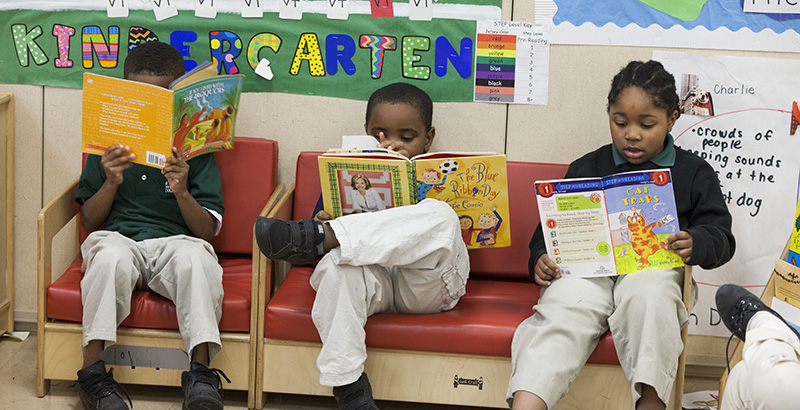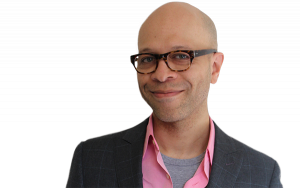Analysis: Is Scapegoating Charter Schools on Segregation Actually a Stealth Attack on Educational Excellence for African-American Students?

You don’t have to look far to find cogent rebuttals to a recent Associated Press story on charter schools and segregation. That analysis — which blames charter schools for intensifying segregation in public schools — is reminiscent of a political campaign where, running from a suspect track record, an incumbent blames the challenger for something he himself has done.
In this case, in a country that is deeply segregated, and whose public schools are deeply segregated both because of changing demographics and the precondition of residential assignment that pervades the public system, charter schools are being scapegoated for creating the racially divided and isolated world that the public schools themselves have given us. It’s the sort of pablum only a politico could offer.
The arguments many have made to counter this are spot-on, in particular about the difference between being assigned to racial isolation versus minorities making affirmative choices to be with people who share their skin color and, perhaps, their values. But there’s a piece that’s missing, and so much turns on understanding it that we gloss over it at our own peril.
The truth is, the attack on charters and their perceived role in segregation reveals a deep and troubling double standard. It’s powered by a desire to destroy black academic excellence — along with those who seek it out and those who seek to provide it — in the name of some other set of democratic fundamentals that, at this point, don’t exist even on paper, let alone in reality. This line of attack illuminates the preferential treatment non-black minorities and, of course, white Americans receive in the realm of public education as a framework for schooling. A framework that doesn’t work for millions of black and brown children but is valorized over those we see having life-changing effects, particularly in our large urban centers.
You can see this bias clearly when you examine how traditional district loyalists and anti-charter activists defend underperforming and overwhelmingly black neighborhood schools. These folks have held these schools blameless during their destructive reign even as black futures have been squandered within them.
They’ve been messaging test cases for the limits of what schools can do (overcome poverty and now segregation) even while they’ve remained central to arguments for more dollars and more people in the system. While in the ’burbs, testing is an evil visited upon stressed-out swizzle-stick-loving toddlers, in the ’hood — where learning is incidental — they’ve been used as a crucible no teacher should have to bear. These schools are the Jeanne d’Arc of “community” even as they rip communities apart, their existence crucial to the overall notion of democratic rule even when that rule is ruinous.
A shining and ironic example of this can perhaps be seen in New York, where the Bloomberg-era school closure and restart strategy — which has ultimately been proven beneficial — was attacked by the United Federation of Teachers and its then-handmaiden the NAACP (a relationship that has only metastasized). Consider Paul Robeson High School. The school, named for the civil rights activist who was ultimately blacklisted for his advocacy, undermined the very promise of his life of service even as it failed to pass on his brilliance to its students. On his opposition to closing the school, UFT President Michael Mulgrew offered, “We cannot continue with policies that allow inequality not only to exist, but to flourish.”
One must wonder to which policies he referred. The residential assignment policies that ensure schools like Robeson are racially isolated? The adult deployment policies that result in the students within them getting the least-experienced teachers who also have the least support (an inequity now fully present as those in New York City’s Absent Teacher Reserve pool are reassigned to low-income, high-minority schools)? These are the sorts of policies we expect black families to support in the name of democracy and community?
The policy menu of black academic oppression is too long to list. But its record of ravaging the black community is one that must not be lengthened in the name of an oppressive view that holds student achievement among its lowest priorities.
Conversely (and courtesy of the charter segregation lobby) we also see what these folks would have us attack: schools working for black families that exist because those same families have made the affirmative decision to attend them.
Depending on what cocktail parties you attended this holiday season, you likely heard any number of derisive characterizations of today’s modern-day Freedom Schools. Some outright condescending (those families don’t know how to choose a school) to counterintuitive (those schools cream the best families). The latter is particularly destructive because it penalizes black families — some foreign-born, some the home-grown descendants of slaves, but all of whom want a better future for their children — for that quality we value most in every other race and creed in the American patchwork: ambition.
Consider how this same ambition is handled in some of America’s other numerous racial tranches. White urbane families who like cities but still want accelerated education have an entire network of segregated academies within the public schools, most commonly known as gifted and talented, fostered for them. It’s widely known that these programs pass over black kids, but no one seems to care, even as cries for the expansion of these programs continue to grow.
Or look at the selective high school admissions process in New York, where Stuyvesant High School — arguably the crown jewel of the network — is overwhelmingly Asian (annually, the combined black and Hispanic student cohort numbers in the single digits). Conservatives defend the hard-work ethic of Asian families. Liberals cite Stuyvesant as a bastion of excellence to which many other races should have access, even if it means lowering the bar for entry.
This excellence is prized and sought after even as Success Academy Charter Schools — among the state’s best schools of any type — which brim over with black and brown kids, battles building by building to get necessary space for its families. It is indeed easier for a store that caters to “adult” interests to open in New York than it is to expand opportunity for minority kids in charter schools. What’s the message being sent here?
Black folks are unique in America because we are often asked to sacrifice some notion of personal agency or sovereignty “for the greater good” in manners that other groups are not asked to and would never be expected to. Don’t protest police shootings because law and order matter more than living and breathing. Give up school choice because democratic school boards are more fundamental than if your kid is educated. Don’t seek a school that may mirror your values and affirm your racial and ethnic identity because integration and assimilation are more important, even if the former is a problem of white preference and the latter potentially undermines your child’s sense of self.
In this round of “segregationist” attacks on charters (a line of reasoning now also core to union opposition against charters as well), we see the latest in a long line of American school policies that all amount to the same thing: a raucous and callous shout of “get to the back of the line” to the country’s black families.
It’s a command to which no family, charter or otherwise, should assent. Now or ever.
Get stories like these delivered straight to your inbox. Sign up for The 74 Newsletter

;)
